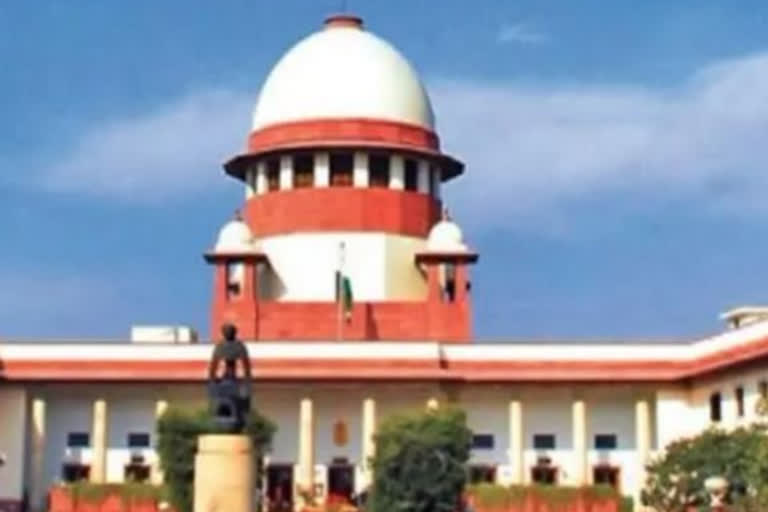New Delhi: Political parties may be directed to give information to the Election Commission about the economic impact assessment of their poll promises or policies and the expected number of beneficiaries, according to a PIL in the Supreme Court on Friday opposing irrational handouts.
The top court, mulling setting up of an expert panel to brainstorm the issue of freebies announced during elections, has sought suggestions from all the stakeholders including the Centre, the poll panel, Finance Commission and Niti Ayog on the issue and would be hearing the PIL on August 22.
Petitioner Ashwini Upadhyay, through senior advocate Vijay Hansaria and lawyer Ashwani Dubey, filed additional submissions on Friday in the top court saying that the registered political parties be asked to furnish relevant information on poll promises relating to freebies or welfare schemes to the Election Commission.
"That there is no dispute that the political parties can announce schemes for the welfare of the people; however, it is necessary that the electorate must have informed material about the financial and impact of the schemes announced by the political parties in their election manifesto.
"The Election Commission of India in exercise of its plenary power under Article 324 of the Constitution can direct the registered political parties to give particulars of the expected number of beneficiaries and the financial impact on the public exchequer with regard to election promises made by them," Upadhyay said.
He also referred to the apex court decisions in which it had directed that each contesting candidate shall fill up a form provided by the Election Commission containing particulars of the criminal cases pending against them.
"The Election Commission was directed to carry out an awareness campaign in this regard. It is submitted that a similar direction may be issued in the present case by this Hon'ble Court making it mandatory for the political parties to give information regarding Economic Impact Assessment of the policies announced by it, in the format prescribed by the Election Commission of India," it said.
On Wednesday, the CJI observed that political parties and individuals cannot be prevented from making poll promises aimed at fulfilling the constitutional mandate and the term "freebie" should not be confused with genuine welfare measures. Earlier the PIL petitioner had provided some data on the grim economic situation of several states.
The states have outstanding liabilities of a whopping Rs 59,89,360 crore as on March 31, 2021 and the new sources of risk have emerged in the form of rising expenditure on non-merit freebies, Upadhyay had said in the written note. While Uttar Pradesh and Maharashtra top the chart with liabilities of Rs 6,62,891 crore and Rs 5,36,891 crore respectively, Punjab has the distinction of being the leader in the debt to Gross State Domestic Product (GSDP) ratio.
Punjab, with a liability of Rs 2,49,187 crore, has the worst debt to GSDP ratio at 53:3 in the current fiscal, according to the written submission. The top court is hearing the PIL which opposes the practice of political parties promising freebies during elections and seeks the Election Commission to invoke its powers to freeze their election symbols and cancel their registration. It is also considering the distribution of freebies by the political parties from public funds and its adverse impact on the fiscal health of the country. (PTI)




